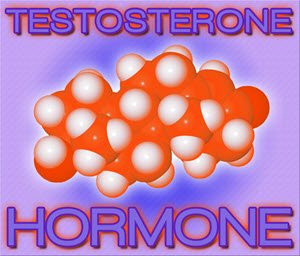Clomiphene Citrate is an alternative to Testosterone Replacement Therapy for men looking for a way to safely restore their Testosterone Levels and improve their health, vitality, and sexual potency.
 It has helped many men across the country restore both their fertility and their erectile function, as well as improve their overall health and vitality.
It has helped many men across the country restore both their fertility and their erectile function, as well as improve their overall health and vitality.
Although Clomiphene Citrate is available as a generic medication, it can also be found under the brand names Serophene and Clomid.
Video Link: https://vimeo.com/294054539
Video Download: Click Here To Download Video
Video Stream: Click Here To Stream Video
Clomiphene Citrate was originally designed to be a fertility drug for women, but ongoing research has shown that the hormone has a tremendous impact upon Testosterone Levels in men that are suffering from Andropause or any other form of Secondary Testosterone Deficiency.
How Does Clomiphene Citrate Work?
To understand how Clomiphene Citrate works, it's important to understand the underlying mechanisms which promote healthy testosterone production in male patients.
patients.
Testosterone Production is the result of a hormone cascade that starts at the Hypothalamus, which functions as the brain's control center.
When the Hypothalamus recognizes that the body needs Testosterone, it sends a hormone to the pituitary gland known as Gonadotropin-Releasing Hormone.
This hormone activates the production of two hormones both related to the healthy function of the Testes—Follicle Stimulating Hormone and Luteinizing Hormone.
These hormones pass through the bloodstream down to the testes, which then produce both Testosterone and sperm.
So Where Does Clomiphene Citrate Fit In?
Clomiphene Citrate is a pharmaceutical medication that is known as a Selective Estrogen Receptor Modulator.
Remember the first step of the cascade? The Hypothalamus uses Estrogen in order to get a grip on how much Testosterone is currently circulating through the body.
Adipose fat tissue has enzymes designed to convert Testosterone into Estrogen (there are other mechanisms at play as well), and when activation sites are triggered in the Hypothalamus by Estrogen, the Hypothalamus responds by reducing the level of Gonadotropin-Releasing Hormone that it releases, thereby restricting Testosterone Production.
Clomiphene Citrate bonds to these activation sites that would normally respond to Estrogen, but does not “flip the switch” that tells the hypothalamus to suppress Testosterone Precursor release, thereby increasing Testosterone Production.
Clomiphene Citrate Vs. Testosterone Therapy
Both forms of therapy are highly effective at restoring Testosterone Production, so why would someone turn to Clomiphene Citrate when they could get the real thing?
There are many patients for whom Clomiphene Citrate is the superior choice of the two options. For example, men that are interested in having children in the near future are actually doing themselves a disservice by using Testosterone.
This is because Bio-Identical Testosterone actually reduces fertility for the duration of treatment, and fertility slowly returns after the therapy is suspended.
This is because when exogenous Testosterone is introduced to the body, it triggers the Hypothalamus to limit the production of Testosterone Precursors, including Luteinizing Hormone and Follicle-Stimulating Hormone.
This doesn't have a major impact on male health, because, outside of their relationship to Testosterone, both of these hormones are only really associated with fertility inside the male body.
Unfortunately, if the body is not producing enough of these two hormones, then the testes don't get the signal to produce sperm.
Sperm concentration and quality slowly decline the longer that you take Testosterone until you are more or less infertile until you quit therapy.
Clomiphene Supports the Natural Hormone Rhythms of the Body
Clomiphene Citrate more naturally restores Testosterone Levels than Bio-Identical Testosterone, because it maintains the normal cycle of Testosterone Production. All of the hormones that your body normally produces continue being made, and you protect your fertility.
Also, many people prefer Clomiphene Citrate because it is cheaper. There are two reasons for this. First, Clomiphene is available in generic form, as many forms of Testosterone Therapy (including Testosterone Patches and Creams) are only available in patented forms.
Second, Clomiphene Citrate is less expensive because it is available in a pill form,  unlike Testosterone Therapy. Bio-Identical Testosterone cannot effectively pass through the digestive system and must be delivered either by injection or via absorption.
unlike Testosterone Therapy. Bio-Identical Testosterone cannot effectively pass through the digestive system and must be delivered either by injection or via absorption.
Testosterone Therapy with HCG
Of course, there is a way to take Bio-Identical Testosterone Treatment while sustaining your fertility and natural capability to produce Testosterone.
Human Chorionic Gonadotropin (HCG) is a recombinant hormone that is not produced by men but has the ability to stimulate the production of both sperm and Testosterone by the testes.
This is because HCG is biologically and functionally similar to Luteinizing Hormone, and thus has the ability to promote fertility even though the brain is producing less of other Testosterone Precursors.
In fact, HCG is often prescribed at the end of Testosterone Therapy or between cycles in order to stimulate the testes to return to normal function when the patient stops taking Testosterone.
Clomiphene vs. Enclomiphene
Currently, there is an alternative to Clomiphene under a clinical trial known as Enclomiphene.
Clomiphene is actually a combination of two Geometric Isomers, meaning that the two molecules are structurally identical, except for the rotation of their configuration.
The two components of Clomiphene Citrate are Zuclomiphene and Enclomiphene.
Zuclomiphene is believed to inhibit the benefits of Enclomiphene for men slightly, and clinical research shows that Enclomiphene Citrate is moderately more effective than Clomiphene Citrate at improving male fertility and Testosterone Production.
In the coming years, it is likely that Enclomiphene will be available with a prescription as a viable treatment option for Low-T and Andropause.
Clomiphene Citrate is not FDA-Approved for Testosterone Therapy
While it is true that Clomiphene has not been given the Food and Drug Administration seal of approval for Low-T, there is ample evidence, in the form of off-label prescription, that Clomiphene is a highly effective means of Testosterone Restoration.
The reason why it has not been approved is more a matter of financial incentive than any potential issues with the treatment. Clomiphene has long passed into generic availability, so there is little incentive for a pharmaceutical company to pay the millions of dollars necessary to foot FDA clinical evaluation to get it approved for therapy.
Clomiphene Citrate has been used for more than fifty years, and there is a low instance of side-effects, most of which are mild. Many even consider Clomiphene to be safer than Bio-Identical Testosterone for Low-T.
Consider Your Options and Talk to Your Doctor About All of the Options Available to You as a Patient
Because of the popularity of Testosterone Therapy today, your doctor may assume that you are interested in Low-T treatment and overlook other potential options.
If you are interested in Clomiphene Citrate, ask your physician about his or her opinion of the medication.
If you are experiencing Fertility issues related to your Testosterone Deficiency, or if you are just looking for a safe and cost-effective form of treatment, Clomiphene Citrate may be right for you!
Contact Us Today For A Free Consultation

- BioSante Pharmaceuticals, Inc. to Present at BIO Investor Forum [Last Updated On: March 16th, 2025] [Originally Added On: October 9th, 2012]
- Secondary osteoporosis: More than what meets the eye! [Last Updated On: March 16th, 2025] [Originally Added On: October 10th, 2012]
- Trimel Provides Clinical and Operational Update [Last Updated On: March 16th, 2025] [Originally Added On: October 15th, 2012]
- Obese teen boys likelier to become impotent and infertile adults [Last Updated On: March 16th, 2025] [Originally Added On: October 17th, 2012]
- Obese teen boys have up to 50 percent less testosterone than lean boys [Last Updated On: March 16th, 2025] [Originally Added On: October 17th, 2012]
- Trimel Reports Physician Market Research Results for CompleoTRT(TM) [Last Updated On: March 16th, 2025] [Originally Added On: October 24th, 2012]
- Obese teen boys likelier to turn into 'impotent' men [Last Updated On: March 16th, 2025] [Originally Added On: October 24th, 2012]
- Trimel Pharmaceuticals Corporation to Report Third Quarter 2012 Results and Host a Conference Call to Update Investors [Last Updated On: March 16th, 2025] [Originally Added On: November 2nd, 2012]
- Peer Exchange: Establishing Bone Health Clinics - Video [Last Updated On: March 16th, 2025] [Originally Added On: November 2nd, 2012]
- What is hypogonadism and how does it affect fertility? - Video [Last Updated On: March 16th, 2025] [Originally Added On: November 2nd, 2012]
- Low Testosterone in Men or Man-O-Pause - Video [Last Updated On: March 16th, 2025] [Originally Added On: November 2nd, 2012]
- Propecia (Finasteride) -- Undisclosed Mechanisms, Potential Dangers [Last Updated On: March 16th, 2025] [Originally Added On: November 2nd, 2012]
- How to Get Ripped - Why You Shouldnt Use Anabolic Steroids - Video [Last Updated On: March 16th, 2025] [Originally Added On: November 2nd, 2012]
- Future Doc: Andropause Alternatives with Dr. James Biddle Part 1 - Video [Last Updated On: March 16th, 2025] [Originally Added On: November 2nd, 2012]
- Increase Testosterone Naturally With these Diet And Workout Secrets - Video [Last Updated On: March 16th, 2025] [Originally Added On: November 2nd, 2012]
- Sector Update: Healthcare - Video [Last Updated On: March 16th, 2025] [Originally Added On: November 2nd, 2012]
- Signs And Symptoms of Hypogonadism [Last Updated On: March 16th, 2025] [Originally Added On: November 2nd, 2012]
- Auxilium and Pfizer Will Conclude Agreement on XIAPEX® EU Collaboration [Last Updated On: March 16th, 2025] [Originally Added On: November 9th, 2012]
- Repros Therapeutics Inc.(R) Reports Third Quarter 2012 Financial Results [Last Updated On: March 16th, 2025] [Originally Added On: November 14th, 2012]
- hypogonadotropic hypogonadism - Video [Last Updated On: March 16th, 2025] [Originally Added On: November 22nd, 2012]
- Research and Markets: Male Hypogonadism - Pipeline Review, H2 2012 [Last Updated On: March 16th, 2025] [Originally Added On: November 30th, 2012]
- Auxilium Pharmaceuticals, Inc. to Present At The Oppenheimer 23rd Annual Growth Conference [Last Updated On: March 16th, 2025] [Originally Added On: December 8th, 2012]
- Low Testosterone (Hypogonadism) - Part 2 - Video [Last Updated On: March 16th, 2025] [Originally Added On: December 10th, 2012]
- The National Mesothelioma Law Firm of Baron and Budd Reports on a New Drug that Could Improve the Health of ... [Last Updated On: March 16th, 2025] [Originally Added On: December 19th, 2012]
- Hypogonadism ¦ Treatment and Symptoms - Video [Last Updated On: March 16th, 2025] [Originally Added On: March 7th, 2013]
- Research and Markets: Male Hypogonadism Global Clinical Trials Review, H1, 2013 [Last Updated On: March 16th, 2025] [Originally Added On: May 1st, 2013]
- Male hypogonadism Prof Ossama Fouda - Video [Last Updated On: March 16th, 2025] [Originally Added On: May 9th, 2013]
- Low Testosterone (Hypogonadism) - Part 3 - Video [Last Updated On: March 16th, 2025] [Originally Added On: July 2nd, 2013]
- Hypogonadism - what should you do - Video [Last Updated On: March 16th, 2025] [Originally Added On: July 2nd, 2013]
- NURS805 Hypogonadism Lecture - Video [Last Updated On: March 16th, 2025] [Originally Added On: August 16th, 2013]
- Hypogonadism: MedlinePlus Medical Encyclopedia [Last Updated On: March 16th, 2025] [Originally Added On: November 3rd, 2013]
- Hypogonadism - Diseases & Conditions - Medscape Reference [Last Updated On: March 16th, 2025] [Originally Added On: November 10th, 2013]
- Hypogonadotropic hypogonadism - Wikipedia, the free encyclopedia [Last Updated On: March 16th, 2025] [Originally Added On: November 10th, 2013]
- Low Testosterone (Low-T) Normal Levels, Hypogonadism, Symptoms ... [Last Updated On: March 16th, 2025] [Originally Added On: November 15th, 2013]
- HYPOGONADISM - University of Dundee [Last Updated On: March 16th, 2025] [Originally Added On: November 23rd, 2013]
- FAQ - Hypogonadism - MEDICAL DIAGNOSIS AND MEDICINAL PLANTS [Last Updated On: March 16th, 2025] [Originally Added On: November 23rd, 2013]
- Hypogonadism - About.com Men's Health [Last Updated On: March 16th, 2025] [Originally Added On: December 2nd, 2013]
- Exciting medical advances using HRT [Last Updated On: March 16th, 2025] [Originally Added On: December 12th, 2013]
- Male hypogonadism: Symptoms - MayoClinic.com [Last Updated On: March 16th, 2025] [Originally Added On: December 12th, 2013]
- Audio-Digest Foundation Announces the Release of Oncology Volume 04, Issue 16: Highlights from Future Directions ... [Last Updated On: March 16th, 2025] [Originally Added On: December 15th, 2013]
- Hypogonadism - Medscape Reference [Last Updated On: March 16th, 2025] [Originally Added On: December 21st, 2013]
- Hypogonadism [Last Updated On: March 16th, 2025] [Originally Added On: December 23rd, 2013]
- Hypogonadism - HealthCentral [Last Updated On: March 16th, 2025] [Originally Added On: December 24th, 2013]
- Hypogonadism | Medscape - Latest Medical News, Clinical Trials ... [Last Updated On: March 16th, 2025] [Originally Added On: December 30th, 2013]
- Hypogonadism - SharedJourney [Last Updated On: March 16th, 2025] [Originally Added On: January 23rd, 2014]
- Study Finds Potential Heart Risks from Testosterone Therapy [Last Updated On: March 16th, 2025] [Originally Added On: February 3rd, 2014]
- Endocrine Society calls for large-scale studies to evaluate testosterone therapy risks [Last Updated On: March 16th, 2025] [Originally Added On: February 8th, 2014]
- Testosterone Therapy Not Always Good for Older Men [Last Updated On: March 16th, 2025] [Originally Added On: February 11th, 2014]
- Hypogonadism: Types, Causes, & Symptoms Healthline [Last Updated On: March 16th, 2025] [Originally Added On: February 14th, 2014]
- Low Testosterone (Hypogonadism) in Men - Video [Last Updated On: March 16th, 2025] [Originally Added On: February 14th, 2014]
- Hypogonadism : Types, Causes, & Symptoms - Healthline [Last Updated On: March 16th, 2025] [Originally Added On: February 17th, 2014]
- Hypogonadism | Medscape - Latest Medical News, Clinical ... [Last Updated On: March 16th, 2025] [Originally Added On: February 23rd, 2014]
- Endo: FDA Oks AVEED Injection For Treatment Of Adult Men With Hypogonadism [Last Updated On: March 16th, 2025] [Originally Added On: March 6th, 2014]
- Unit Project 1 Hypogonadotropic hypogonadism - Video [Last Updated On: March 16th, 2025] [Originally Added On: March 8th, 2014]
- Update on Endo's Product Portfolio - Analyst Blog [Last Updated On: March 16th, 2025] [Originally Added On: March 11th, 2014]
- Male hypogonadism Symptoms - Diseases and Conditions ... [Last Updated On: March 16th, 2025] [Originally Added On: April 2nd, 2014]
- Hypogonadism: Types, Causes, & Symptoms - Medical ... [Last Updated On: March 16th, 2025] [Originally Added On: April 6th, 2014]
- VLog #127 Frances Explains Hypogonadism. - Video [Last Updated On: March 16th, 2025] [Originally Added On: April 7th, 2014]
- Repros Completes Enrollment for Androxal Study - Analyst Blog [Last Updated On: March 16th, 2025] [Originally Added On: April 16th, 2014]
- Prevalence, Diagnosis and Treatment of Hypogonadism in ... [Last Updated On: March 16th, 2025] [Originally Added On: April 30th, 2014]
- Repros Therapeutics Q2 Loss a Penny Wider than Expected - Analyst Blog [Last Updated On: March 16th, 2025] [Originally Added On: August 12th, 2014]
- Repros Reports Encouraging Late-Stage Data on Androxal - Analyst Blog [Last Updated On: March 16th, 2025] [Originally Added On: August 28th, 2014]
- Repros Therapeutics Analyst Brief Report; Androxal(R) Achieves Superiority in Top Line Analysis by Small Cap Street ... [Last Updated On: March 16th, 2025] [Originally Added On: September 30th, 2014]
- The Wall Street Journal: Repros Therapeutics shares drop on drug application setback [Last Updated On: March 16th, 2025] [Originally Added On: October 18th, 2014]
- Apricus expands development pipeline with in-licensing of US rights for fispemifene [Last Updated On: March 16th, 2025] [Originally Added On: October 21st, 2014]
- Apricus expands development pipeline with the in-licensing of US rights for fispemifene, a phase 2b ready asset, from ... [Last Updated On: March 16th, 2025] [Originally Added On: October 21st, 2014]
- Hypogonadism No Moustache! No Beard!! [Last Updated On: March 16th, 2025] [Originally Added On: October 28th, 2014]
- Male Hypogonadism: Male Reproductive Endocrinology: Merck ... [Last Updated On: March 16th, 2025] [Originally Added On: October 28th, 2014]
- Hypogonadism Wikipedia [Last Updated On: March 16th, 2025] [Originally Added On: October 28th, 2014]
- Urology Care Foundation - Urology A-Z - Low Testosterone [Last Updated On: March 16th, 2025] [Originally Added On: November 3rd, 2014]
- Will Repros (RPRX) Miss Estimates This Earnings Season? - Analyst Blog [Last Updated On: March 16th, 2025] [Originally Added On: November 5th, 2014]
- Hypogonadism in men living with HIV - Video [Last Updated On: March 16th, 2025] [Originally Added On: November 7th, 2014]
- Male Hypogonadism Therapeutic Pipeline Industry Review, H2 2014 - Video [Last Updated On: March 16th, 2025] [Originally Added On: November 7th, 2014]
- Testosterone Deficiency (Hypogonadism) Overview ... [Last Updated On: March 16th, 2025] [Originally Added On: November 23rd, 2014]
- Endo to Acquire Rights to Testosterone Nasal Gel Natesto - Analyst Blog [Last Updated On: March 16th, 2025] [Originally Added On: November 26th, 2014]
- Male hypogonadism pathophysiology - Video [Last Updated On: March 16th, 2025] [Originally Added On: January 14th, 2015]
- Auxilium Announces Results from Special Meeting of Stockholders [Last Updated On: March 16th, 2025] [Originally Added On: January 28th, 2015]
- What is Hypogonadism - Symptoms and Treatment | Hormone ... [Last Updated On: March 16th, 2025] [Originally Added On: January 30th, 2015]
- Male Hypogonadism 1/28/15 - Video [Last Updated On: March 16th, 2025] [Originally Added On: January 31st, 2015]
- Male hypogonadism: symptoms, cause, treatment, risk ... [Last Updated On: March 16th, 2025] [Originally Added On: February 18th, 2015]
Word Count: 1142





















